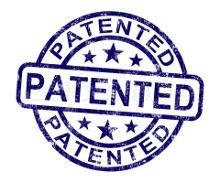Software patents take a hit, but they're far from dead

The good news is that the Supreme Court of the United States (SCOTUS) has ruled against Alice in the Alice v CLS business process/software patent case (PDF Link). This is a step forward in ridding American patents of poor software, business process, and genetic patents. The bad news is that most experts think that this decision is far from striking a serious blow against such patents.

In the case, Alice International, an Australian company, had a patent, Systems and computer program products for exchanging an obligation, Patent No. 7,725,375. This patent describes a method for two parties to safely exchange currency or other financial instruments. Alice was also awarded similar patents. In May 2007, Alice was sued by CLS Bank International. CLS claimed that the patents were invalid and unenforceable. CLS also argued that Alice's patents only codified ancient business practices on a computer, thus there was no patentable invention here.
When push came to shove, SCOTUS' justices unanimously agreed with CLS. It was CLS's last argument that carried the most weight. In the decision, the Court ruled that since Alice's patent "do not, for example, purport to improve the functioning of the computer itself or effect an improvement in any other technology or technical field. An instruction to apply the abstract idea of intermediated settlement using some unspecified, generic computer is not 'enough' to transform the abstract idea into a patent-eligible invention."
In short, as the SCOTUS Blog put it, "So the Supreme Court leaves room for software patents, just not those that take an abstract idea and provide for a computer to implement it." That's not exactly a ringing endorsement against software, business process or genetic patents as a class. As the SCOTUS blog stated, "The Court limits software patents, but does not eliminate them."
Featured
Still, it is a small step forward from the 2010 business process Bilski patent decision. In Bilski v. Kappos, while the business patent owner Bilski lost his patent, SCOTUS didn't rule against software and business method patents. In Alice v CLS, SCOTUS has added that simply taking an old abstract idea and placing it on a computer doesn't make it patentable.
As Adam Mossoff, a law professor and expert in patent law at George Mason University School of Law, said, "The Court is continuing the practice it began with its 2010 decision in Bilski v. Kappos in which it strikes down patents on the grounds that they allegedly cover unpatentable subject matter like an abstract idea or law of nature. But the Supreme Court provides little to no legal guidance to the lower courts as to how to apply this decision in the future such that inventors and commercial firms working in the innovation industries can know with certainty if their discoveries or inventions are patentable or not."
Still, Mossoff continued, "The one ray of hope [for companies seeking software patents] in this decision is that, similar to its affirmation of the patentability of business methods in Bilski, the Court in Alice Corp. expressly holds that 'many computer-implemented claims are formally addressed to patent-eligible subject matter.' Thus, innovative software inventions in the high-tech industry are now definitively deemed patentable, contrary to the claims of many patent skeptics today."
Andrew Updegrove, a founding partner of Gesmer Updegrove, a top intellectual property and technology law firm, however, sees little to praise in this decision.
Updegrove said, "The primary significance of the decision may not be that it creates any new law, but that it so emphatically (i.e., by a unanimous decision) reinforces the old law that it established in Bilski v. Kappos. If that proves to be the only significance, however, one might wonder why the court took the case on at all, given the flood of cases seeking a hearing by the high court and the limited number of slots available."
"One possibility," Updergrove speculated, "might be that the court wanted to send a message to the PTO (Patent and Trademark Office) to quit issuing weak patents, and to reinforce its agreement with the administration, and many in the industry, that bad patents are hurting the economy and innovation."
Daniel Ravicher, the Public Patent Foundation's executive director, sees a little more hope for those who oppose software patents. "As expected, the Supreme Court continues to correct the old guard of the Federal Circuit's overly pro-patent perspective. Bilski, Mayo, Myriad and now Alice should end forever the nonsense that … that the Federal Circuit misinterpreted to support the patenting of business methods, software, and human genes."
But, Ravicher concluded, that this decision won't stop companies from trying to patent everything and anything. "Smart patentees will still try to get broad claims along with narrower (safer) ones as backup. Since the patent office allows you to get as many claims as you're willing to pay for, you don't have to chose between the two."
So it is that patent trolls will keep on suing, bad patents will still be granted, and the patent wars will continue.
Related Stories: